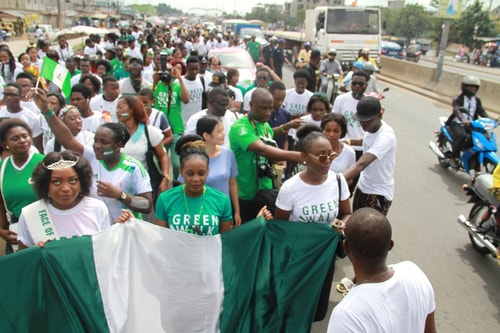Democracy and individual liberty are core ideals we enjoy in the UK. The Government even uses them as a shorthand for our national values, in a list used by schools, and in times past they have shaped debates from women’s suffrage to the abolition of slavery.
Today, good governance and responsive leadership ensure that we all enjoy the dividends of democracy and freedom. Democracy, which connotes majority rule (the candidate with the majority of votes at an election wins the election), carries with it the responsibility of protection of minority groups and being a ‘voice for the voiceless’.
The Evangelical Alliance produced a resource called What kind of society?, which suggests that a society where there is true freedom from persecution and addiction, justice for the poor and marginalised, love of neighbour and truth in speech, is a society that is good for all. While I know the UK isn’t ‘perfect’ – is anywhere perfect? – I also know that the people of this country (politicians and civil society alike) have long been working for a society that is good for all.
As I have reflected on the debates and the seemingly intractable negotiations going on in the House of Commons regarding Brexit, despite the immense frustration and uncertainty around it, I saw at play the dynamics of a functioning democracy – government of the people, by the people and for the people. MPs on all sides have been insisting that the people’s mandate be carried out, the people’s voice be heard, and what is best for the UK as a whole be done.
This prompted me of the need to pray for our political leaders. As a British Christian born and trained in this country as a lawyer, with Nigerian roots, where I come from a heritage of parents who fought against injustice and promoted good governance in Nigeria, it has always been my desire to see justice done. I yearn for the progress and development of Nigeria. Twenty years after the return to democracy and civil rule from decades of military rule, it seems like Nigeria has only just begun.
"I saw at play the dynamics of a functioning democracy – government of the people, by the people and for the people."
The recently concluded elections in Nigeria saw a return for a second term of the incumbent president Muhammadu Buhari. The elections had been criticized widely as one fraught with violence, intimidation, disenfranchisement of voters, vote buying and delay in the collation of results, leading to allegations of inflated numbers. All of these occurred despite a one-week postponement by the electoral umpire.
The people are pleading with the government of Muhammadu Buhari to deal with the problem of insecurity ravaging the north-east of the country. It needs to tackle the twin menace of Boko Haram insurgency and Fulani militants camouflaged as herdsmen and more recently the problem of banditry.
The Christian minorities in the north-eastern part of Nigeria have been the target of indiscriminate killings, maiming and destruction of properties. Evangelical Alliance members and charities such as Open Doors UK, Release International and Christian Solidarity Worldwide (CSW) have highlighted this issue from a religious persecution perspective.
Heartrending is the fate of Leah Sharibu, the 15-year-old Christian school girl abducted by Boko Haram from her school in Dapchi, Yobe State, in the north-east of Nigeria in February 2018 and has remained in captivity for refusing to convert to Islam.
Her abductors have boasted that she and Alice Ngaddah, also a Christian, captured in March 2018, will remain their slaves for life. Another faction of Boko Haram is also holding the remaining 112 girls infamously kidnapped from their school in Chibok, Borno State, north-east Nigeria since 2014.
The government of Nigeria cannot continue to pay lip service to these security issues. Action must be taken to free these girls. All forms of religious persecution must not be tolerated, including the one by Fulani militants, who under the guise of being cattle herders looking for grazing land, attack Christian farmers and destroy their farmland with or without provocation. The Nigerian government must live up to its responsibility of protecting lives and properties.
Scripture enjoins us to pray for our political leaders: “I urge, then, first of all, that petitions, prayers, intercession and thanksgiving be made for all people – for kings and all those in authority, that we may live peaceful and quiet lives in all godliness and holiness. This is good, and pleases God our Saviour, who wants all people to be saved and to come to a knowledge of the truth” (1 Timothy 2:1 – 4).
I encourage you to join me in prayer for Nigerian political leaders. I pray for wisdom, understanding and divine guidance as they seek lasting solutions to the problem of insecurity. I pray for a sense of greater accountability to the people, compassion for human lives and true love for one’s neighbour. I pray for boldness (political will) to do the right thing. I pray the same for our political leaders in the UK.
Other members of the Evangelical Alliance’s advocacy team, including Dr David Landrum, director of advocacy, and Peter Lynas, director of Northern Ireland, share their perspectives on democracy and individual liberty in the July-August edition of idea magazine. Click the link to read more.


